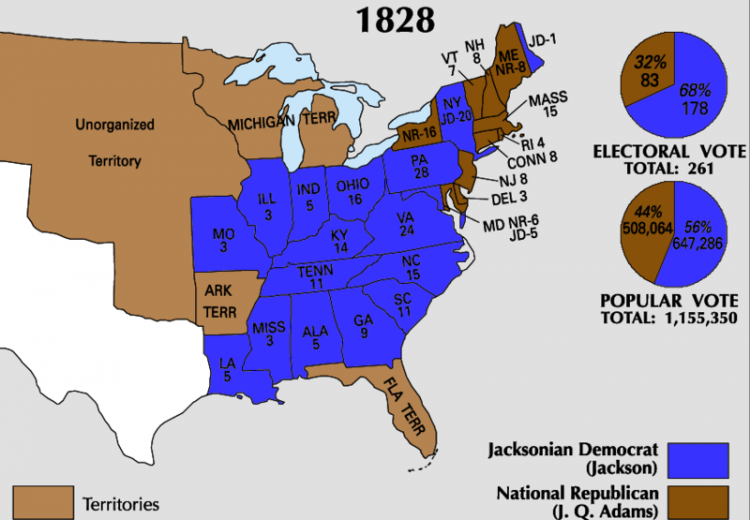Lesson 4: The 1828 Campaign of Andrew Jackson: Issues in the Election of 1828 (and Beyond)

1828 Electoral map
Changes in voting qualifications and participation, the election of Andrew Jackson, and the formation of the Democratic Party—due largely to the organizational skills of Martin Van Buren—all contributed to making the election of 1828 and Jackson's presidency a watershed in the evolution of the American political system. The campaign of 1828 was a crucial event in a period that saw the development of a two-party system akin to our modern system, presidential electioneering bearing a closer resemblance to modern political campaigning, and the strengthening of the power of the executive branch.
In this lesson, students analyze changes in voter participation and regional power, and review archival campaign documents reflecting the dawn of politics as we know it during the critical years from 1824 to 1832.
Guiding Questions
How did changes in the electorate affect the election of 1828?
What was the source of Andrew Jackson's popularity?
What was the importance of Andrew Jackson's popularity?
How were party politics reflected in the campaign of 1828?
What were the positions of the fledgling Democratic Party and its opposition?
Learning Objectives
Evaluate how changes in voting participation influenced the election of 1828.
Analyze maps and data to determine how regional factors are reflected in the voting results of 1828.
Analyze campaign materials from 1828 to explain the issues on which they touch and/or the style and tone of the campaign.
